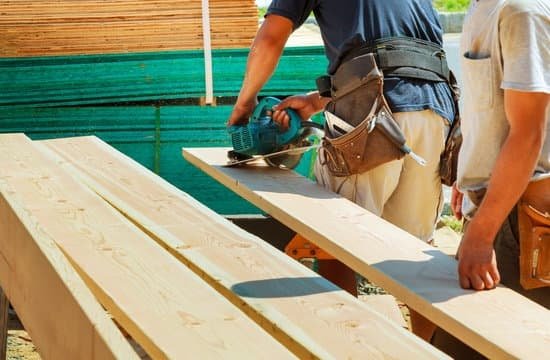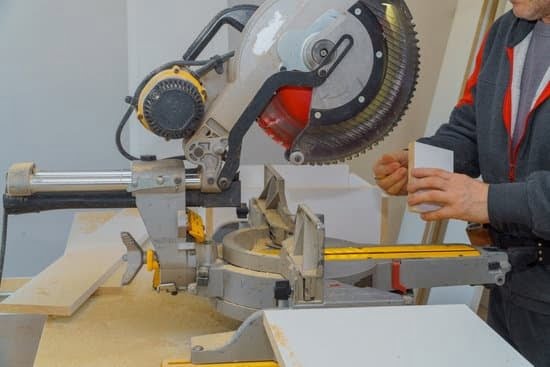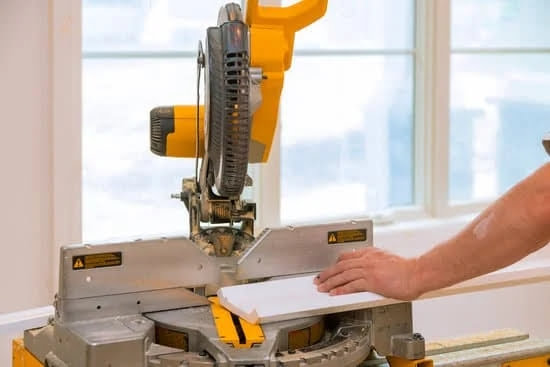Whether you’re a beginner or an experienced woodworker looking to refresh your knowledge, this comprehensive guide will help you get started on the right foot. From essential hand tools to power tools, safety gear, and specialty tools for advanced projects, we’ll cover everything you need to know to build your dream woodworking shop.
When it comes to woodworking, having the right tools is crucial for achieving professional results. In this article, we’ll break down the must-haves and nice-to-haves for both hand tools and power tools. We’ll also discuss the importance of safety gear and how to properly care for your woodworking tools to keep them in top shape. Additionally, we’ll explore budget-friendly alternatives for those looking to invest in high-quality tools without breaking the bank.
Whether you’re interested in building furniture, carving intricate designs, or tackling advanced woodworking projects, having a well-equipped woodworking shop is essential. By the end of this guide, you’ll have a clear understanding of what you need to start woodworking and how to keep your tools organized and maintained for years to come. So let’s dive in and explore what it takes to build your dream woodworking shop – one tool at a time.
Essential Hand Tools for Woodworking
When starting a woodworking shop, it’s essential to have the right hand tools to create precision and detail in your projects. From measuring and marking to cutting and shaping, having a set of essential hand tools is crucial for any woodworker. So what tools do you need for a woodworking shop? Let’s explore the comprehensive guide to essential hand tools for woodworking.
One of the most important hand tools for woodworking is a set of chisels. These are used for carving out joints, shaping wood, and creating intricate details in your projects. A good quality set of chisels will last a lifetime if properly maintained, making it a worthwhile investment.
Another essential hand tool is a combination square, which is used for measuring and checking squareness in woodworking. It’s versatile and can be used for layout work, machine setup, and more. A sharp handsaw is also crucial for making precise cuts by hand when power tools may not be suitable or available.
Finally, having a set of quality screwdrivers with different head types will allow you to assemble and disassemble your projects with ease. These are just a few examples of essential hand tools every woodworking shop should have, but there are many other options available depending on the type of projects you intend to tackle.
| Hand Tools | Uses |
|---|---|
| Chisels | Carving joints, shaping wood, creating intricate details |
| Combination Square | Measuring, checking squareness in woodworking |
| Screwdrivers | Assembling and disassembling projects |
Power Tools for a Woodworking Shop
When it comes to setting up a woodworking shop, power tools are essential for efficiently completing projects. Whether you’re a beginner or a seasoned woodworker, having the right power tools can make a significant impact on the quality and speed of your work. Here is a list of must-have power tools for a woodworking shop:
- Table Saw
- Router
- Compound Miter Saw
- Power Drill
- Jigsaw
In addition to these must-have power tools, there are also nice-to-have power tools that can enhance the range of projects you can tackle and improve the precision and efficiency of your work. These may include:
- Bandsaw
- Belt Sander
- Planer
- Oscillating Spindle Sander
Investing in quality power tools is essential for long-term use and success in your woodworking projects. It is important not to compromise on tool quality as it can affect the overall outcome of your work.
When considering what tools are necessary for a woodworking shop, it’s crucial to also factor in the space available in your workplace. Ensure that you have adequate space and electrical capacity to accommodate these power tools, as well as proper ventilation and safety measures.
Overall, having a well-equipped woodworking shop with both must-have and nice-to-have power tools will enable you to take on a wide variety of projects with efficiency and precision.
Safety Gear for Woodworking
Woodworking can be an incredibly rewarding and fulfilling hobby, but it also comes with its fair share of safety risks. It’s important to prioritize safety when setting up your woodworking shop, which means investing in the right safety gear to protect yourself and your projects. In this section, we’ll discuss the essential safety gear every woodworker should have in their shop.
Protective Eyewear and Respiratory Protection
One of the most important pieces of safety gear for woodworking is protective eyewear. Whether you’re cutting, sanding, or drilling, there’s always a risk of flying debris that could cause serious eye injuries. Look for safety glasses or goggles that provide full coverage and are designed to withstand impact.
Additionally, respiratory protection is crucial when working with wood dust and airborne particles. A high-quality dust mask or respirator can help prevent lung irritation and long-term respiratory issues.
Hearing Protection
The loud noise produced by power tools in a woodworking shop can lead to hearing damage over time. To protect your ears, invest in a pair of ear muffs or ear plugs specifically designed for woodworking. These will help reduce the risk of hearing loss without compromising your ability to work effectively in the shop.
Apparel and PPE
Wearing the right clothing and personal protective equipment (PPE) is also essential for woodworking safety. Avoid loose-fitting clothing that could get caught in machinery, and opt for closed-toe shoes with slip-resistant soles to prevent accidents. Additionally, consider wearing a fitted apron or smock to protect your skin from splinters, cuts, and other injuries while working with wood.
By prioritizing safety gear in your woodworking shop, you can enjoy peace of mind while pursuing your passion for creating beautiful wood products. Remember that these are just some of the essentials; always assess the specific hazards present in your workshop and equip yourself accordingly to ensure a safe working environment.
Specialty Tools for Advanced Woodworking Projects
When it comes to advanced woodworking projects, having the right specialty tools can make all the difference in the outcome of your work. These tools are designed to provide precision, accuracy, and versatility, allowing you to tackle more complex and intricate projects with confidence. Whether you’re interested in creating fine furniture, detailed carvings, or custom cabinetry, investing in specialty tools can elevate your woodworking skills to the next level.
Woodworking Lathe
One of the most essential specialty tools for advanced woodworking is a lathe. This versatile machine allows woodworkers to create intricate turnings and shapes out of wood. With a woodworking lathe, you can craft table legs, spindles, bowls, vases, and other cylindrical or spherical objects with ease. When choosing a lathe for your woodworking shop, consider factors such as spindle capacity, motor power, and adjustable speed settings to ensure that it meets your specific project needs.
Biscuit Joiner
For advanced joinery techniques, a biscuit joiner is an indispensable tool for creating strong and seamless connections between wood pieces. Also known as a plate joiner, this tool cuts small slots into the edges of two pieces of wood and inserts biscuits (small wooden discs) with glue to form a secure bond. The result is clean and flush joints that are ideal for constructing cabinets, tabletops, frames, and other furniture pieces.
Dovetail Jig
When it comes to creating dovetail joints for drawers, cabinets, or boxes, a dovetail jig is an essential tool for achieving precise and professional-looking results. This specialized tool guides the cutting of dovetail-shaped slots and pins in wood pieces, allowing for tight interlocking connections that are both strong and visually striking. With a dovetail jig in your woodworking shop, you can elevate the craftsmanship of your projects while gaining valuable experience in traditional joinery techniques.
As you advance in your woodworking journey, acquiring these specialty tools will not only expand your capabilities but also enhance the quality of your workmanship. Investing in these advanced tools demonstrates a commitment to honing your skills as a woodworker and opens up opportunities to take on more challenging and rewarding projects.
Tool Storage and Organization
When it comes to woodworking, having the right tools is important, but so is keeping them organized and easy to find. A well-organized woodworking shop can save you time and frustration, allowing you to focus on your projects rather than searching for the right tool. Whether you have a small corner of a garage or a dedicated workshop space, there are some key principles to keep in mind when it comes to tool storage and organization.
One essential aspect of tool storage is having a designated place for each tool. This not only helps keep the shop tidy but also makes it easier to spot when a tool is missing. A pegboard with hooks or a wall-mounted tool rack can be an effective way to store hand tools like hammers, chisels, screwdrivers, and wrenches. For larger power tools, such as drills, sanders, and saws, sturdy shelves or cabinets can provide safe and organized storage.
Another important consideration for efficient woodworking shop organization is workflow. Positioning your workbench near your primary tool storage area can streamline your work process. This allows for easy access to your most-used tools while still leaving ample space for project assembly and completion.
Investing in proper equipment for sawdust management is also crucial for keeping your woodworking shop clean and efficient. Dust collection systems can help maintain air quality by capturing fine wood particles generated by various power tools during use.
When creating an organized woodworking shop layout, it’s important to tailor the setup to fit personal preferences and working habits. There are many creative approaches that woodworkers take in setting up their shops; assessing individual needs will help determine the most practical arrangements of all equipment and materials according to available space.
| Tool Storage Principles | Importance |
|---|---|
| Designated place for each tool | Keeps shop tidy and enables easy access. |
| Positioning workbench near primary tool storage area | Streamlines workflow. |
| Dust collection system | Maintains air quality. |
Budget-Friendly Alternatives
When setting up a woodworking shop, budget concerns are always at the forefront of any woodworker’s mind. The good news is that there are plenty of high-quality tools available that won’t break the bank. Consider investing in the following budget-friendly alternatives to get your woodworking shop up and running without sacrificing quality:
- Hand Tools: Instead of purchasing expensive sets of chisels or hand planes, consider buying individual high-quality tools from reputable brands. Look for sales or second-hand options to get the best value for your money.
- Power Tools: When it comes to power tools, consider purchasing reconditioned or refurbished models from trusted manufacturers. These tools have been tested and restored to like-new condition, providing excellent performance at a fraction of the cost.
- Safety Gear: Don’t skimp on safety gear, but look for discounted options from reputable suppliers. Online retailers often offer sales and promotions on safety glasses, respirators, and hearing protection to keep you safe in the workshop without overspending.
With these budget-friendly alternatives in mind, you can equip your woodworking shop with high-quality tools without exceeding your financial limits. By being savvy about where and when you make your purchases, you can make every dollar count as you build your dream woodworking space.
Remember that investing in quality tools is essential for ensuring precise and safe woodworking projects. With careful consideration and smart shopping, you can fill your workshop with top-notch equipment while staying within your budget constraints. And as you continue to grow and develop as a woodworker, you can gradually expand your tool collection with additional high-quality pieces.
Maintenance and Care for Your Woodworking Tools
Proper maintenance and care for your woodworking tools are essential in keeping them in top shape and ensuring their longevity. Without regular maintenance, your tools can become dull, rusty, or damaged, leading to inefficient work and costly replacements. To avoid these issues, it’s important to establish a routine for maintaining and caring for your woodworking tools.
One of the most basic yet crucial steps in tool maintenance is keeping them clean. After every use, make sure to remove any sawdust, shavings, or other debris from your tools. Use a brush or compressed air to clean out crevices and moving parts. Additionally, it’s important to periodically oil moving parts and metal surfaces to prevent rust and ensure smooth operation.
Sharpening your cutting tools is another key aspect of tool maintenance. Dull blades not only produce poor results but also pose a safety hazard as they require more force to operate. Invest in a quality sharpening system and learn the proper techniques for sharpening each type of tool you own. Keeping blades sharp will improve the quality of your work and extend the life of your tools.
Lastly, proper storage is vital for maintaining the condition of your woodworking tools. Store them in a dry environment away from moisture and humidity to prevent rusting. Consider investing in tool cabinets or wall-mounted storage systems to keep your tools organized and easily accessible. By dedicating time and effort to maintenance and care, you can ensure that your woodworking tools will continue to serve you well for years to come.
Conclusion
In conclusion, building your dream woodworking shop is a process that can be incredibly rewarding and fulfilling. Whether you are just starting out or looking to expand your existing collection, it’s important to remember that acquiring the right tools is essential for creating quality woodwork. From essential hand tools to power tools, safety gear, and specialty tools for advanced projects, having the right equipment will greatly impact the outcome of your creations.
As you embark on this journey, take the time to carefully consider what tools you truly need for your woodworking shop. Assessing your current skill level and the types of projects you plan to undertake will help you prioritize which tools to invest in first. Do thorough research and make informed decisions when it comes to purchasing your woodworking tools – quality should always be a top priority.
Remember that tool storage and organization, as well as proper maintenance and care for your woodworking tools, are crucial aspects of creating an efficient and safe working environment. Keeping your workspace tidy and ensuring that your equipment is in top shape will not only prolong the life of your tools but also contribute to a more enjoyable woodworking experience overall.
With dedication, patience, and thoughtful investment in the right tools, you can gradually build up your dream woodworking shop – one tool at a time.
Frequently Asked Questions
What Is Needed for a Woodworking Shop?
A woodworking shop requires a variety of tools and equipment to effectively work with wood. This includes hand tools like chisels, hand saws, planes, hammers, and clamps, as well as power tools such as drills, circular saws, jigsaws, routers, and sanders.
Additionally, a woodworking shop needs workbenches, storage solutions for wood and tools, safety equipment like goggles and dust masks, as well as measuring and marking tools like tape measures and squares.
What Tools Are Needed to Begin Woodworking?
To begin woodworking, some essential tools are necessary. These include a good quality set of chisels for carving and shaping wood, a crosscut saw for making straight cuts across the wood grain, a coping saw for cutting curves or intricate shapes in wood, a block plane for smoothing surfaces and removing sharp edges, and a hammer for general carpentry tasks.
Additionally, beginners will benefit from having clamps to secure pieces of wood together while working on them.
What Tools Are Needed for a Carpentry Workshop?
A carpentry workshop requires an array of tools to handle various tasks involved in carpentry work. Essential hand tools include hammer, screwdrivers (both flathead and Phillips), tape measure, level, utility knife or razor blade knife for cutting through materials like drywall or cardboard backed carpet etc., chalk line or laser level- these help you create straight lines on walls or floors when doing framing jobs such as installing doors/windows/frame walls etc., pliers/wrenches (adjustable wrench).
Power tools often needed include circular saws for making long straight cuts; miter saw to make angled cuts; table saw which comes in handy when cutting large pieces of plywood into smaller sizes by yourself without needing another person’s help holding down the board while you cut it with your handsaw/pneumatic nailer) used primarily during framing stages when attaching nails quickly into studs; cordless drill/driver is used every day so there should be extra batteries housed inside the case too!

Hi everyone! I’m a woodworker and blogger, and this is my woodworking blog. In my blog, I share tips and tricks for woodworkers of all skill levels, as well as project ideas that you can try yourself.





